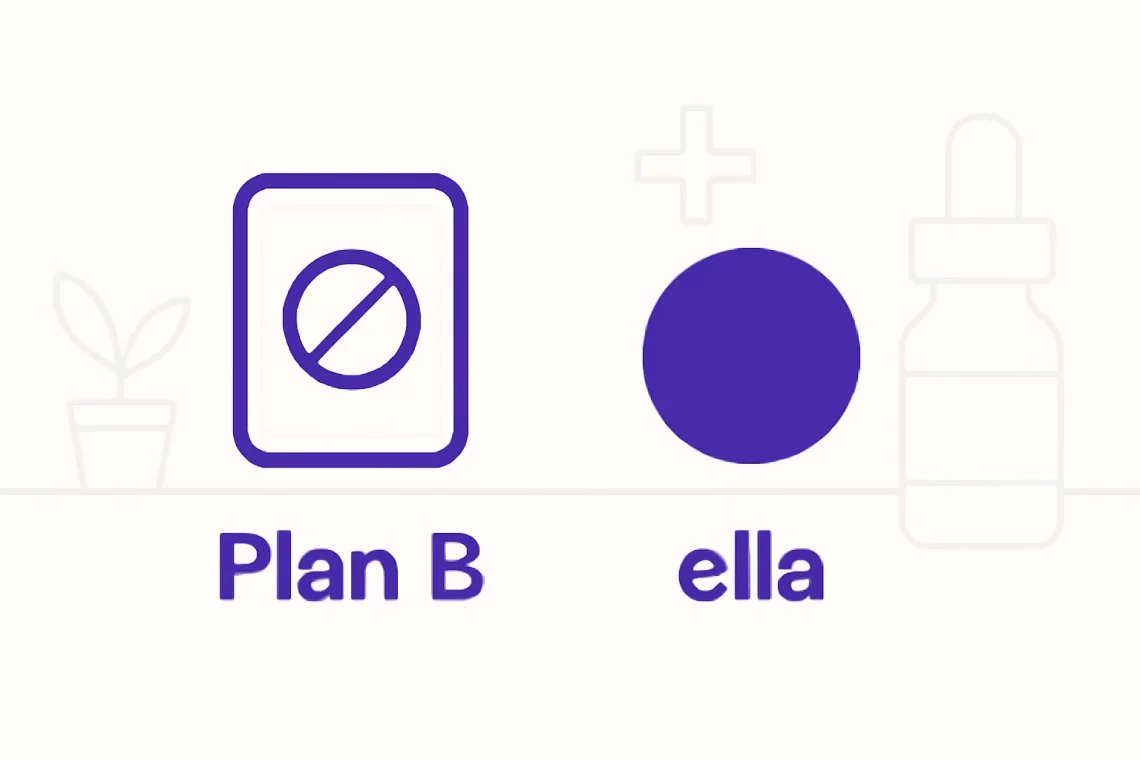
Plan B vs Ella: Understanding the Differences in Emergency Contraception
In today’s world, the importance of emergency contraception cannot be overstated. With a variety of options available, individuals often find themselves weighing the pros and cons of different methods. Among these options, Plan B and Ella have emerged as two of the most recognized names in the realm of post-coital contraception. Each of these medications serves a crucial role in preventing unintended pregnancies, yet they operate through different mechanisms and have distinct characteristics. Understanding these differences is essential for making informed decisions about sexual health.
As society becomes increasingly aware of reproductive rights and health, discussions surrounding emergency contraception have gained momentum. Many are seeking clarity regarding the effectiveness, accessibility, and potential side effects of these options. With various factors influencing the choice between Plan B and Ella, such as timing of consumption, individual health conditions, and personal preferences, it is crucial to examine each method in detail.
This exploration will not only provide insight into how Plan B and Ella function but will also delve into their respective benefits and limitations. With accurate information, individuals can better navigate their reproductive health choices, ensuring they make informed decisions that align with their lifestyles and needs.
Understanding Plan B
Plan B, often referred to as the “morning-after pill,” is a form of emergency contraception that contains levonorgestrel, a synthetic progestin. It is designed to prevent pregnancy after unprotected sexual intercourse or contraceptive failure, such as a broken condom. Plan B is most effective when taken within 72 hours of unprotected sex, but it can still provide some level of effectiveness up to five days afterward.
The primary mechanism by which Plan B works is by preventing or delaying ovulation. If ovulation has already occurred, Plan B may not be effective, which is why timing is critical. In addition to inhibiting ovulation, it may also alter the uterine lining, making it less receptive to a fertilized egg.
One of the significant advantages of Plan B is its availability. It can be purchased over-the-counter at pharmacies without a prescription, making it accessible to many individuals. This ease of access has contributed to its popularity, as many people feel empowered to take control of their reproductive health.
However, like any medication, Plan B is not without potential side effects. Some users may experience nausea, fatigue, headache, dizziness, or changes in their menstrual cycle. It is important to note that while Plan B is a reliable option for emergency contraception, it is not intended for regular use and should not replace a regular contraceptive method.
In summary, Plan B is a widely accessible emergency contraceptive option that primarily prevents pregnancy by delaying ovulation. Its effectiveness diminishes over time, making prompt use essential. While generally safe, potential side effects should be considered before use.
Exploring Ella
Ella, or ulipristal acetate, is another form of emergency contraception that offers a different approach to preventing pregnancy after unprotected intercourse. Unlike Plan B, Ella can be taken up to 120 hours (five days) after unprotected sex, making it a more versatile option for those who may not be able to access it immediately.
Ella works by blocking or delaying ovulation, similar to Plan B. However, it is more effective than Plan B, particularly when taken closer to the time of ovulation. This makes it a preferred option for individuals who may be at risk of ovulating shortly after unprotected intercourse.
One notable aspect of Ella is that it requires a prescription in many locations, which can limit its accessibility for some individuals. However, once obtained, it offers a reliable option for emergency contraception. The effectiveness of Ella remains consistent throughout the five-day window, providing a crucial safety net for those who may not have access to emergency contraception within the standard 72-hour timeframe.
Potential side effects of Ella can include headache, nausea, abdominal pain, and changes in menstrual bleeding. While the side effects may be similar to those of Plan B, the overall safety profile of Ella is well-established, and it is considered safe for most individuals to use.
In conclusion, Ella provides a longer window for effectiveness compared to Plan B, making it a valuable option for emergency contraception. Although it may require a prescription, its reliability and effectiveness in preventing pregnancy make it a crucial alternative.
Key Differences Between Plan B and Ella
When comparing Plan B and Ella, several key differences emerge that can significantly impact an individual’s choice. Understanding these distinctions is essential for making an informed decision regarding emergency contraception.
First and foremost, the active ingredients in each option differ. Plan B contains levonorgestrel, while Ella contains ulipristal acetate. This difference in composition leads to variations in how each medication functions in the body. Plan B is primarily effective within 72 hours, with decreasing effectiveness thereafter, while Ella maintains its efficacy for up to 120 hours.
Another critical difference lies in the accessibility of each option. Plan B is available over-the-counter, allowing individuals to purchase it without a prescription, which can be a significant advantage for those seeking immediate access. In contrast, Ella typically requires a prescription, which may pose challenges for some individuals, particularly in urgent situations.
Additionally, the effectiveness of each option can vary based on the timing of administration. Ella has been shown to be more effective than Plan B when taken closer to the time of ovulation, making it a better choice for individuals who are unsure of their ovulation status.
Cost can also be a factor when comparing these two options. Since Plan B is sold over-the-counter, its price may vary by location and pharmacy, but it is generally more affordable than Ella, which often requires insurance coverage or out-of-pocket payment for the prescription.
In summary, the key differences between Plan B and Ella revolve around their active ingredients, timing of effectiveness, accessibility, and cost. By understanding these distinctions, individuals can make more informed choices regarding their emergency contraception options.
Making an Informed Choice
Choosing between Plan B and Ella involves considering various factors unique to each individual. While both options serve the same purpose of preventing unintended pregnancies after unprotected intercourse, personal circumstances play a significant role in determining which method is most suitable.
Timing is perhaps the most critical factor. If an individual is within the 72-hour window after unprotected sex and is confident they have not ovulated, Plan B may be a convenient and effective choice. However, for those who may be approaching their ovulation window or are unsure, Ella could provide more peace of mind due to its longer efficacy period.
Accessibility is another crucial consideration. Individuals who may have difficulty obtaining a prescription or those who want immediate access may prefer Plan B for its over-the-counter availability. On the other hand, those who have a prescription for Ella and are aware of their ovulation cycle may opt for it for its higher efficacy.
Cost can also influence the decision. For individuals without health insurance or those seeking a more affordable option, Plan B may be the preferable choice. However, for those who prioritize effectiveness and have the means to obtain Ella, it may be worth the investment.
Ultimately, the decision between Plan B and Ella should be made based on individual circumstances, health considerations, and personal preferences. Consulting with a healthcare provider can also provide valuable guidance tailored to one’s specific needs.
**Disclaimer:** This article is for informational purposes only and does not constitute medical advice. For any health-related concerns or questions about emergency contraception, it is essential to consult with a qualified healthcare professional.




